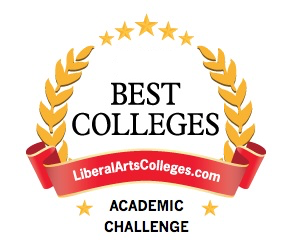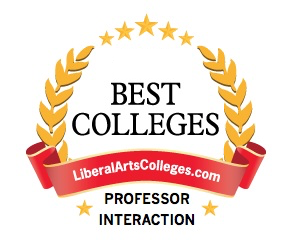
Photo: Furman University. Retrieved from: www.furman.edu
Located in Greenville, South Carolina, Furman University is one of the most renowned co-educational liberal arts institutions in the country, as well as one of the oldest universities in the state. This university offers majors in 42 subject areas. Furman is a member of Associated Colleges of the South. SAT and ACT scores are not requirements for admission, but many students still submit their SAT and ACT scores when available. The liberal arts curriculum includes textual analysis, a couple of subjects in the natural sciences, math and analytical reasoning, two empirical studies of human behavior, history, ultimate question, foreign language and world culture.
Furman sends teams to compete in the NCAA Division I athletics and is one of the smallest NCAA Division I schools in the nation. In 1963, the student body voted to make Paladins the official name of the intercollegiate teams. The university also competes in the Southern Conference. The popular sports in Furman are football, golf, soccer, tennis, rugby, lacrosse, cross country and track and field.
Furman is not only renowned for its academics and athletics, but also for the beauty of the campus. Students and faculty members are surrounded by the beauty of nature in the wooded campus. In the center is a 16-acre lake surrounded with Georgian-style buildings that serve as residences and admin offices.
School History
In 1826, Furman University started out in Edgefield, SC as Men’s Academy and Theological Institute. In 1850, the campus was transferred to Greenville, South Carolina, and the name was changed to honor Richard Furman of Charleston, SC. Furman is an influential minister and president of the Triennial Convention, the first Baptist convention in the United States. 1933, female students from the Greenville Women’s College went to class in Furman along with the male students. The two institutes merged shortly after.
In 1956 Furman went to its present location, north of downtown Greenville. Furman University was affiliated with the South Carolina Baptist Convention and the Southern Baptist Convention until the school year of 1991-92.
Campus Life
While the Greek societies are prominent in campus, most of the students are not members. Greek sororities and fraternities make socializing easier, with their events and other activities. Freshmen and sophomores live in residence halls. Upperclassmen live in apartments run by the university. Most students live in campus, but some students choose to live off campus, for various reasons.
All student housing facilities have air-conditioning, built-in closets and wireless Internet access. Students also have access to washers and dryers. Apartments have two or four bedrooms, a separate living room, kitchen and balcony. Dining is easy on campus because Furman University students are on a meal plan and eat in the dining facility, Daniel Dining Hall.
Student leaders are active, and those that join the student government are assigned to handle a particular area of student needs along with other committee members.
Studying is a joy in this institution and students are free to be creative and ambitious without much pressure. Basically, many Furman students that excel academically claim to be competing with themselves. All classes in Furman are taught by professors, and the classes are small, with under twenty students per class. Undergraduate research is one of the most appealing aspects of being a student in Furman, and coordinating with professors becomes easier with the small class size.
Financial Aid
When the student receives his or her acceptance to Furman, the financial aid package will be described in detail so that the student and the family will have an idea how much they have to pay after deducting the amount quoted by the institution. Students that need help paying for a Furman education may apply for a need-based financial aid package which includes loans, work study programs and scholarships. The average debt amount after graduation is $26,000.


